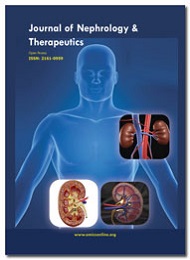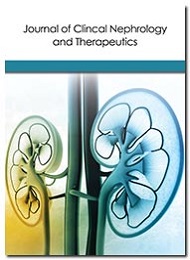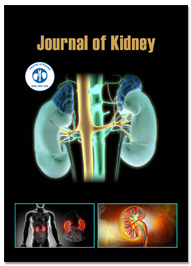Theme: New Innovations and Frontiers in Nephrology and Therapeutics
Nephrology 2022
It is with great pleasure that we invite you to hitch the 11th International Conference on Nephrology & Therapeutics, which can happen from MARCH 21-22, 2022 in Brussels, Belgium. Nephrology-2022 highlights the theme “New Innovations and Frontiers in Nephrology and Therapeutics” which incorporates special keynote presentations, plenary speaker sessions, young researcher forum, poster presentations, kidney symposia, Nephrology workshops and exhibitions.
Congress for Nephrology 2022 can target the supreme, recent and energizing developments in Nephrology & Therapeutics believe that gives a distinguished open door for agents over the planet to fulfil, organize and see new logical advancements in nephrology & Therapeutics.
Congress for Nephrology 2022 can target the supreme, recent and energizing developments in Nephrology & Therapeutics believe that gives a distinguished open door for agents over the planet to fulfil, organize and see new logical advancements in Nephrology & Therapeutics. Congress aims to compile leading academic scientists, researchers and research scholars to exchange and share their experiences and research results on all aspects of Nephrology & Therapeutics.
With members from round the world focused on learning about Nephrology and Therapeutics and its advances; this is often your best opportunity to succeed in the most important assemblage of participants from the Nephrology and Therapeutics community. Conduct presentations, distribute information, meet with current and potential scientists, make a splash with new treatment methods, and receive name recognition at this event. World-renowned speakers, the foremost recent techniques, developments, and therefore the newest updates nephrologist are hallmarks of this conference.
- Nephrology scientists & Therapeutics scientists
- Nephrology scholars
- Nephrology doctors
- Psychologists
- Physical and occupational therapists
- Rehabilitation engineers
- Basic nephroscientists Pharmacists
- Speech therapists
- Nephrosis associations & foundations
(CKD) Chronic Kidney Disease means your kidneys are damaged and can't filter blood the way they ought to. So this is often called Chronic Disease because this damage to your kidneys happens slowly over an extended period of your time. This damage can cause wastes to create up in your healthy body. Chronic Kidney Disease also can cause other health problems.
(AKI)Acute Kidney Injury is that the term that has recently replaced the term ARF. AKI is defined as an abrupt decrease in kidney function, which encompasses both injury (structural damage) and impairment (loss of function). Acute kidney injury (AKI) refers to an abrupt decrease in kidney function, leading to the retention of urea and other nitrogenous waste products and within the dysregulation of extracellular volume and electrolytes.
Diabetic Nephropathy is additionally referred to as Diabetic Kidney Disease. Having high blood sugar levels thanks to diabetes can harm the part of the kidneys that filter your blood. The primary sign of diabetic renal disorder (nephropathy) is protein or albumin within the urine (microalbuminuria). If you've got albumin within the urine and you're diabetic, you likely have diabetic nephropathy.
Nephrology may be a specialty of adult general medicine and paediatrics that concerns with study of the kidneys, specifically normal kidney function (renal physiology) and renal disorder (renal pathophysiology), the preservation of kidney health, and therefore the treatment of renal disorder, from diet and drugs to renal replacement therapy (dialysis and kidney transplantation)
Dialysis may be a treatment that purifies and filters the blood employing a machine. When the kidneys can't do their job this helps keep your electrolytes and fluids in balance when the kidneys can't do their job. Dialysis works by filtering toxins, waste and fluid from your blood through a membrane. The two sorts of dialysis, haemodialysis and peritoneal dialysis, use different methods to filter blood. With haemodialysis, the filtering membrane is named a dialyzer and is inside a dialyzer.
Kidney transplant or Renal transplant is that the transplant of a kidney into a patient with End-Stage renal disorder (ESRD). Kidney transplant is usually classified as deceased-donor (formerly referred to as cadaveric) or living-donor transplantation counting on the source of the donor organ. the foremost serious risk of a transplant is that your body rejects the kidney. However, it's rare that your body will reject your donor kidney. The Mayo Clinic estimates that 90 percent of transplant recipients who get their kidney from a living donor live for a minimum of five years after surgery.
The kidneys are two bean-shaped organs. Each kidney is about the dimensions of a fist. Your kidneys filter extra water and wastes out of your blood and make urine. Renal disorder means your kidneys are damaged and can’t filter blood the way they ought to. You’re at greater risk for renal disorder if you've got diabetes or high vital sign. If you experience renal failure, treatments include kidney transplant or dialysis. Other kidney problems include acute kidney injury, kidney cysts, kidney stones, and kidney infections.
The field of onconephrology encompasses the broad diapason of kidney disorders that can arise in cases with cancer. Beyond cancers of the kidney, nonrenal cancers can have renal complications, and anticancer curatives, including chemotherapy, targeted anticancer agents and immunotherapy can have adverse renal goods, leading to the development of fluid, electrolyte and acid – base diseases, as well as acute kidney injury and habitual kidney complaint. Also, renal impairment can alter the excretion and metabolism of anticancer agents, challenging cure adaptation. A clearer understanding of cancers and anticancer curatives that affect the kidney is essential to ameliorate patient care and to grease the development of new, nontoxic treatments. This series of papers aims to examine the complex relationship between cancer and the kidney across the diapason of onconephrology.
An infection in any a part of the urogenital system, the kidneys, and bladder or urethra. Urinary tract infections are more common in women. They typically occur within the bladder urethra, but more serious infections involve the kidney. A bladder infection may cause pelvic pain, increased urge to urinate, pain with urination and blood within the urine. A kidney infection may cause back pain, nausea, vomiting and fever. Common treatment is with antibiotic.
Glomerular diseases damage the glomeruli, letting protein and sometimes red blood cells leak into the urine. Sometimes a glomerular disease also interferes with the clearance of waste products by the kidney, in order that they begin to create up within the blood. Glomerular diseases damage the glomeruli, letting protein and sometimes red blood cells leak into the urine. Sometimes a glomerular disease also interferes with the clearance of waste products by the kidney, in order that they begin to create up within the blood.
Urology, also referred to as genitourinary surgery, is that the branch of drugs that focuses on surgical and medical diseases of the male and feminine urinary-tract system and therefore the male reproductive organs. Urologic diseases or conditions include tract infections, kidney stones, bladder control problems, and prostate problems, among others. Some urologic conditions last only a brief time, while others are long-lasting.
The urinary tract is your body’s system for removing urine. Urine consists of wastes and water. The tract includes your kidneys, ureters, and bladder. To urinate normally, the tract must work together within the correct order. Urologic diseases or conditions include tract infections, kidney stones, bladder control problems, and prostate problems, among others. Some urologic conditions last only a brief time, while others are long-lasting. An urologist might treat bladder problems, urinary tract infections (UTIs), bladder and kidney cancer, kidney blockage, and kidney stones. Men may additionally see them for: male erectile dysfunction (ED)
Pediatric urologists are surgeons who can diagnose, treat, and manage children's urinary and genital problems. If your child has an illness or disease of the genitals or tract (kidneys, ureters, and bladder), a pediatric urologist has the experience and qualifications to treat your child the urologist might want to see blood counts, kidney function, or test PSA (prostate-specific antigen) or testosterone levels. Your urologist may order imaging studies. This will include sonography of the kidneys, the bladder, and/or the prostate; or an imaging scan to see specific organs.
Tubular and Interstitial Diseases
Tubulointerstitial nephritis (TIN) may be a frequent explanation for acute kidney injury (AKI) which will cause chronic kidney disease (CKD). TIN is related to an immune-mediated infiltration of the kidney interstitium by inflammatory cells, which can reach fibrosis. The term tubulointerstitial is employed to broadly ask kidney diseases that involve structures within the kidney outside the glomerulus. These diseases generally involve tubules and/or the interstitium of the kidney and spare the glomeruli.
Hypertension is another name for top vital sign. It can cause severe health complications and increase the danger of heart condition, stroke, and sometimes death. Vital sign is that the force that an individual's blood exerts against the walls of their blood vessels. High blood pressure, also called hypertension, is vital sign that's above normal. Your vital sign changes throughout the day supported your activities. Having vital sign measures consistently above normal may end in a diagnosis of high vital sign (or hypertension)
Acute Kidney failure occurs when your kidneys suddenly become unable to filter waste products from your blood. When your kidneys lose their filtering ability, dangerous levels of wastes may accumulate, and your blood's chemical makeup may get out of balance. If the progress of CKD is rapid and therefore the patient opts to not have treatment, anticipation could also be a couple of years at the most. However, even people that have complete kidney failure may live for years with proper care and regular dialysis treatments. A kidney transplant can also end in an extended survival period.
Tubulointerstitial nephritis (TIN) may be a frequent explanation for acute kidney injury (AKI) which will cause chronic kidney disease (CKD). TIN is related to an immune-mediated infiltration of the kidney interstitium by inflammatory cells, which can reach fibrosis. The foremost common explanation for acute tubulointerstitial nephritis is an allergy to a drug. Antibiotics like penicillin and therefore the sulfonamides, diuretics, and nonsteroidal anti-inflammatory drugs (NSAIDs)—including aspirin—may trigger an allergy.
Kidney stones, or renal calculi, are solid masses made from crystals. Kidney stones usually originate in your kidneys. However, they will develop anywhere along your tract. Passing kidney stones are often quite painful, but the stones usually cause no permanent damage if they're recognized during a timely fashion. Counting on your situation, you'll need nothing quite to require pain medication and drink much water to pass a urinary calculus.
Nephrotic syndrome may be a kidney disorder that causes your body to pass an excessive amount of protein in your urine. Nephrosis is typically caused by damage to the clusters of small blood vessels in your kidneys that filter waste and excess water from your blood. Common primary causes of nephrosis include kidney diseases like minimal-change nephropathy, membranous nephropathy, and focal glomerulosclerosis. Secondary causes include systemic diseases like DM, LE, and amyloidosis.
Kidney - Mineral & Bone disorders
Mineral and bone disorder in CKD occurs when damaged kidneys and abnormal hormone levels cause calcium and phosphorus levels during a person's blood to be out of balance. Mineral and bone disorder commonly occurs in people with CKD and affects most of the people with renal failure receiving dialysis.
Anemia in Chronic Kidney Disease
Anemia may be a common complication of chronic kidney disease (CKD). CKD means your kidneys are damaged and can’t filter blood the way they ought to. This damage can cause wastes and fluid to create up in your body. CKD also can cause other health problems. to urge the marrow to form red blood cells, the kidneys make a hormone called erythropoietin, or EPO. When the kidneys are damaged, they'll not make enough EPO. Without enough EPO, the bone marrow doesn't make enough red blood cells, and you've got anemia.
Urologists are surgical specialists who specialise in anatomical or structural disorders of the kidneys and tract. They treat problems like kidney stones, kidney blockages, and kidney cancer. Urologists are qualified to perform surgery and outpatient medical procedures to correct such conditions. To summarize, nephrologists specifically treat diseases that affect the kidneys and their ability to function, like diabetes or renal failure. Urologists treat conditions of the tract, including people who are often suffering from the kidneys like kidney stones and obstruction.
Nephrology 2022 will cover the newest advances within the field of hemodialysis, going from uremic toxins, Kidney diseases, hemodiafiltration, advancements in hemodialysis, dialysis in intense kidney damage, and complexities of kidney damage including mineral bone ailment, iron deficiency, and cardiovascular infections.
This event was originally conducting for the general public healthcare team, including nephrologists, clinical specialists, general surgeons, kidney transplant surgeons, surgical and nephrology nurses, dialysis technicians, social workers and renal nutritionists. It had been also designed to be of interest to other health care professionals and first care physicians. This event was originally conducting for the general public healthcare team, including nephrologists, clinical specialists, general surgeons, kidney transplant surgeons, surgical and nephrology nurses, dialysis technicians, social workers and renal nutritionists. it had been also designed to be of interest to other health care professionals and first care physicians.
Members Associated with Nephrology & Kidney Care Research
The study of Nephrology composed of all over 17,000 renal physicians and 155,454 academics, 45, 650 nephrologists are working in the field of kidney research. Nephrology Congress promotes expert the patient care, advances in the medical research, and educates the renal group. Nephrology Congress also informs policymakers about issues of significance to kidney specialists and their patients. It is estimated that 1470 renal physicians are there in the USA region and their organizations is also responsible for the standards of patient care, public health education, monitoring of all types of kidney transplants.
Hospitals Associated with Nephrology & Kidney Care Research:
As per the world wide statistics they were nearly 12700 Hospitals in cites associated with Nephrology and 1297 doctors of USA working in the hospitals.
List of major Hospitals Associated with Nephrology in USA:
Mayo Clinic
Cleveland Clinic
Johns Hopkins Hospital
New York-Presbyterian Hospital
UCSF Medical Center
Ronald Reagan UCLA Medical Center
Hospitals of the University of Pennsylvania-Penn Presbyterian
Massachusetts General Hospital
Barnes-Jewish Hospital
Mount Sinai Hospital
List of Societies Associated with Nephrology Research around the Globe:
|
ERA-EDTA |
Arab Society of Nephrology & Renal Transplantation |
|
Emirates Medical Association Nephrology Society |
|
|
The National Kidney Foundation |
Iraqi Society of Nephrology |
|
British Renal Society |
|
|
African Association of Nephrology |
Lebanese Society of Nephrology & Hypertension |
|
Egyptian Society of Nephrology |
Saudi Society of Nephrology |
|
Kenya Renal Association |
Syrian Society of Nephrology & Transplantation |
|
Moroccan Society of Nephrology |
Yemen Society for Nephrology and Transplantation |
|
Nephrology Society of Tanzania |
Russian Dialysis Society |
|
Nigerian Association of Nephrology |
|
|
Senegalese Society of Nephrology |
Swedish Society of Nephrology |
|
South African Renal Society |
|
|
Tunisian Society of Nephrology |
Korean Society of Nephrology |
|
Albanian Society of Nephrology |
Taiwan Society of Nephrology |
|
Bulgarian Society of Nephrology |
American Society of Nephrology |
|
Estonian Society of Nephrology |
|
|
Hungarian Society of Nephrology |
Indonesian Society of Nephrology |
|
Latvian Association of Nephrology |
Malaysian Society of Nephrology |
|
Renal Association |
Myanmar NephroUro Society |
|
Nephrology Society of Thailand |
|
|
Montenegrin Association of Nephrologists |
Philippine Society of Nephrology |
|
Polish Society of Nephrology |
|
|
Romanian Society of Nephrology |
Bangladesh Renal Association |
|
Association of Cardio nephrology of Serbia |
Indian Society of Nephrology |
|
Slovenian Society of Nephrology |
Pakistan Society of Nephrology and Urology |
|
Turkish Society of Nephrology |
Sri Lanka Society of Nephrology |
|
Argentina Society of Nephrology |
Austrian Society of Nephrology |
|
Bolivian Society of Nephrology |
Belgian-Dutch Speaking Society of Nephrology |
|
Brazilian Society of Nephrology |
|
|
Chile Society of Nephrology |
|
|
Colombian Society of Nephrology |
Dutch Federation of Nephrology |
|
Costarican Society of Nephrology |
French Society of Nephrology |
|
Cuban Society of Nephrology |
|
|
Hellenic Society of Nephrology |
|
|
Guatemalan Society of Nephrology |
Irish Kidney Association |
|
Latin-American Society of Nephrology |
Irish Nephrology Society |
|
Mexican College of Nephrologists |
Israel Society of Nephrology and Hypertension |
|
Mexican Institute for Nephrologycal |
|
|
Panamanian Society of Nephrology |
Norwegian Society of Nephrology |
|
Paraguayan Society of Nephrology |
Portuguese Society of Nephrology |
|
Peruvian Society of Nephrology |
Renal Association |
|
Puerto Rican Society of Nephrology |
|
|
Uruguayan Society of Nephrology |
Venezuelan Society of Nephrology |
Market Value on Nephrology & Therapeutics Research:
As per the WHO, more than 190 million patients are experiencing constant renal failure and experience renal dialysis and more than 220 million males experience the effects of kidney diseases related with prostate organs, for example, swelling that outcomes in blockage of the stream of urine through the body. The United States national establishment of diabetes and stomach related and kidney diseases announced that more than 1.3 million kidney stone patients are analyzed each year over the Middle East. By and by, the worldwide market for incontinence gadgets is principally determined by the rising pervasiveness of Chronic Kidney Disease (CKD) and End Stage Renal Disease (ESRD) Also, expanding commonness of diabetes and hypertension, maturing populace and a lack of kidney donors for transplant. Developing programs session these specific infection and individual public health among patients will lead the market in the upcoming years.
Conference Highlights
- Chronic Kidney disease
- Acute Kidney Injuries
- Diabetic Nephropathy
- Nephrology
- Dialysis
- Kidney transplant
- Kidney Disease
- Urinary Tract Infections
- Glomerular Diseases
- Urology
- Urologic Diseases
- Pediatric Urologist
- Tubular and Interstitial Diseases
- Hypertension
- Acute Kidney Failure
- Tubulointerstitial Diseases
- Kidney Stones
- Nephrotic Syndrome
- Kidney - Mineral & Bone disorders
- Anemia in Chronic Kidney Disease
- Kidney urology
- End Stage Renal Disease
- Onconephrology
To share your views and research, please click here to register for the Conference.
To Collaborate Scientific Professionals around the World
| Conference Date | March 21-22, 2022 | ||
| Sponsors & Exhibitors |
|
||
| Speaker Opportunity Closed | |||
| Poster Opportunity Closed | Click Here to View | ||
Useful Links
Special Issues
All accepted abstracts will be published in respective Our International Journals.
- Journal of Nephrology & Therapeutics
- Journal of Clinical Nephrology and Therapeutics
- Journal of Kidney
Abstracts will be provided with Digital Object Identifier by


















